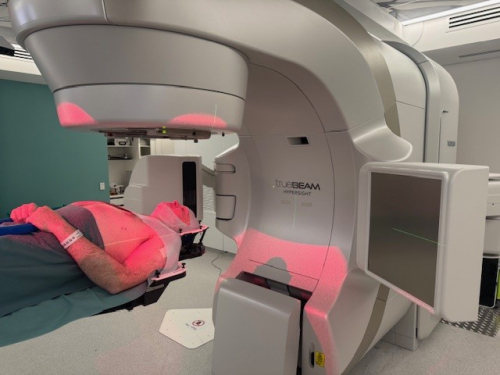Prescribing a more sustainable future

Hundreds of disposable insulin pens will be kept out of landfill thanks to a campaign headed by endocrinologist Dr Shoshana Sztal-Mazer.
Dr Sztal-Mazer wanted to improve waste management across our health service, and became curious about her patients' use of disposable plastic insulin pens. She knew of reuseable insulin pens, but found they weren’t common among Alfred Health patients. So she set out to change that.
"The average person on insulin will need to use 75 disposable pens each year, all of which will end up in landfill. A reusable pen can last up to ten years," she said.
"Disposable pens get thrown in the bin, whereas reusable ones are metal pens, and you put the cartridge inside. Over 10 years, that's 750 disposable pens in landfill compared to just one.
"Firstly, I thought, can they be recycled? And if not - I was aware of reusable pens from my training but they weren't really in use - would it use more energy to create reusable pens compared to using the current disposable ones?”
Dr Sztal-Mazer wrote to pharmaceutical companies and the Australian Diabetes Society, eventually discovering that reusable pens were by far the better environmentally sustainable option due to landfill issues. This discovery sparked the campaign for change.
A key driver of the project's success was achieving behavioural change. An initial attitudinal survey of doctors' prescribing habits in the department's outpatient clinic found there was interest, yet no-one was prescribing the sustainable pens. The team embarked on an education campaign using posters throughout the department to help inform medical staff, and created patient resources to empower patients to make the decision to switch.
A post-campaign survey showed attitudes had changed marginally, but not enough, so a second campaign was launched, which focused on the practicalities of usage.
Diabetes Education Manager Diana Blackburn demonstrated the process for using the insulin pens to doctors – including how to insert the cartridge, and how to put the pen together ready for use – to demonstrate how easy it was for patients to use the reusable pens and make a positive environmental impact.
The team also made reusable pens available in the clinic ready for use, which made a measurable difference to uptake of the initiative.
“Our younger patients, in particular, were very keen about our initiative. People like to be asked to be involved. They feel empowered that they have agency in their own treatment. When we explained the different options, many patients chose the reusable option, and some even ask now before I've mentioned it,” Dr Sztal-Mazer said.
Looking forward, the team is extending their success in several directions:
- an awareness and education campaign at the new Diabetes Connecting Care Clinic at Caulfield Hospital. To increase uptake of the pens among patients, the team will give GP demonstrations and display patient information and instruction sheets in the waiting room and doctors' rooms
- an investigation into the possibilities of using these pens for inpatients with an emphasis on safety
- a campaign to introduce inpatients who will be discharged on insulin to consider reusable pens early to establish positive habits
- working with manufacturers to lessen the environmental impact of their materials, and to create more sustainable products that are recyclable or biodegradable
- national expansion – peers in Sydney have shown great interest in the initiative, and the team are sharing learnings to help their colleagues to replicate the project's success.


